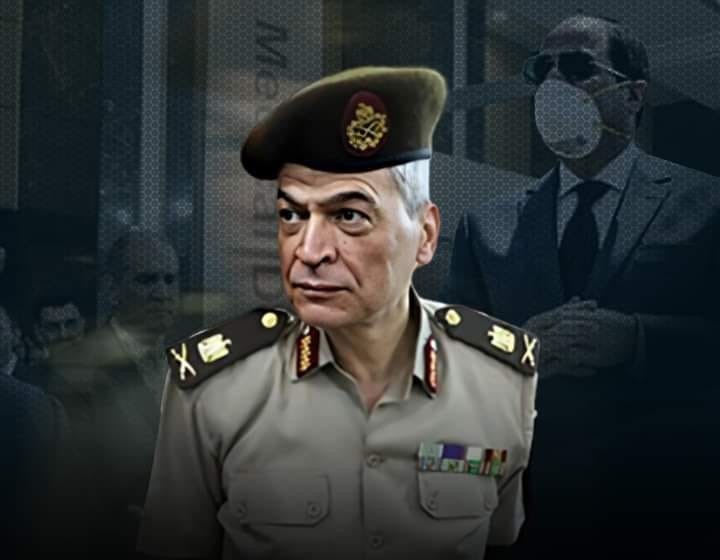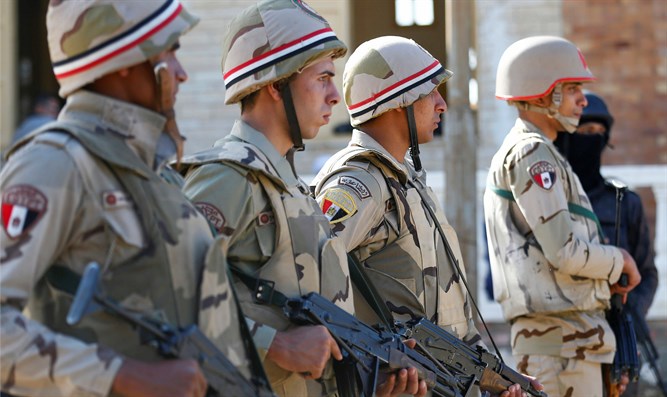General Abdel-Fattah al-Sisi has sparked widespread controversy in the country after he talked about the existence of reserves of medical supplies in Egypt that are not available to the Ministry of Health or the Armed Forces. Al-Sisi’s statements were broadcast on live TV while he was inspecting the army’s equipment and crews that are intended to help the civil sector in combating the spread of coronavirus. During these statements al-Sisi said to the Egyptian people, “I tell you not to worry. We have sufficient reserves. I am not talking about the reserves of the Ministry of Health, the state, or even the army reserves… No.” Al-Sisi added: “Do not use anything from this reserve without asking me, Bahaa.” Al-Sisi directed his words to someone called “Bahaa,” and asked him not to spend one pound of his reserves, except after asking him personally.The reference to Bahaa sparked widespread controversy among activists who said that it was not the name of the Minister of Finance (Mohamed Maait), nor the Minister of Health, Hala Zayed, not even the Minister of Defence, Mohamed Ahmed Zaki.
Suddenly it seemed to the Egyptians that al-Sisi was running the country with unknown hidden reserves, with unknown people who citizens know nothing about, as he leads the country through one of the world’s worst crises. Questions spread about who Bahaa is and what job he has that entitles him to control an unknown stock of medical supplies during this crisis.
Multiple sources said that it is Major General Bahaa el-Din Zaidan, director of the Evacuation Medical Complex for the Armed Forces, President of the Egyptian Authority for Unified Procurement, Medical Supply and Management and the Medical Technology Department, which al-Sisi created through a law in August 2019.This body exclusively undertakes the procurement of medical preparations and supplies for all government agencies and bodies, as well as prepares the annual estimated budget necessary for procurement. It also prepares programmes and rules for managing and standardising procurement from home and abroad. Among the tasks of the authority is “contracting with companies to purchase medical supplies and manage their storage, transportation, and distribution, as well as coordinating with medical companies to enhance the state’s strategic medical stock to meet any exceptional circumstances.” It is also concerned with setting the procedures and measures necessary to counter emergencies in coordination with other bodies.
Observers say that this body is considered the real Ministry of Health in Egypt, and that it actually holds all the functions of the Egyptian Ministry of Health, including managing doctors’ salaries. Al-Sisi runs the country through a group of military bodies that actually perform the functions of government, and the ministers and the government are really just a front. The reality is that state budgets and reserves are not subject to the supervision of the Egyptian House of Representatives.
The Egyptian parliament monitors the official budget for salaries and expenses, while effective reserves, budgets, and income are controlled by the army, and the army’s budgets are not subject to any oversight. This means that al-Sisi runs the state through hidden bodies and hidden budgets, none of which are subject to oversight, and because they are of a military nature they are not discussed but come in the form of direct orders. Al-Sisi’s perception of state administration sees the minister as just an employee or official with limited powers who cannot take significant decisions. The army actually controls most of the country’s resources, among them the Suez Canal, the Diabetes Mine, most oil wells, and even land).





Recent Comments